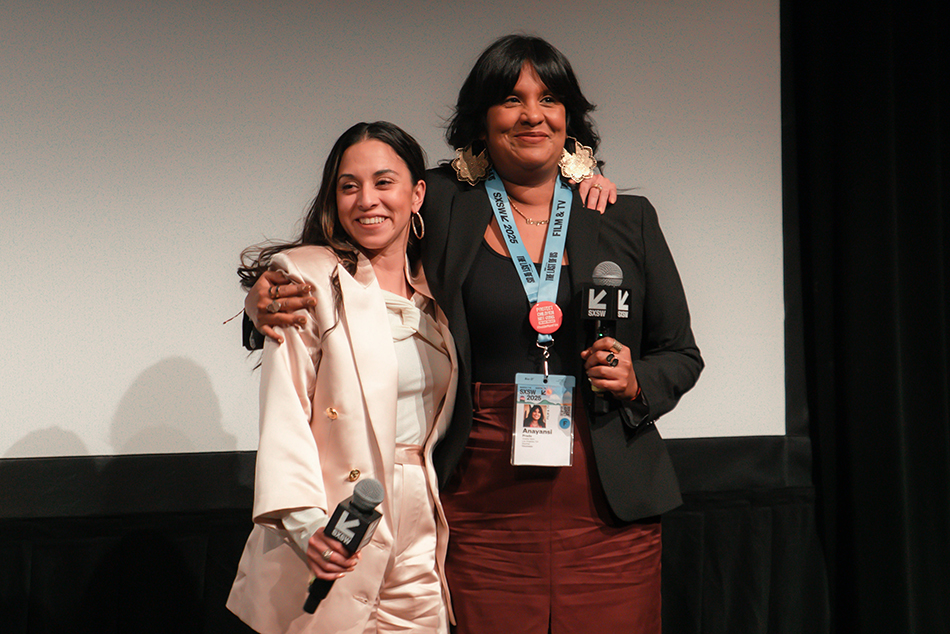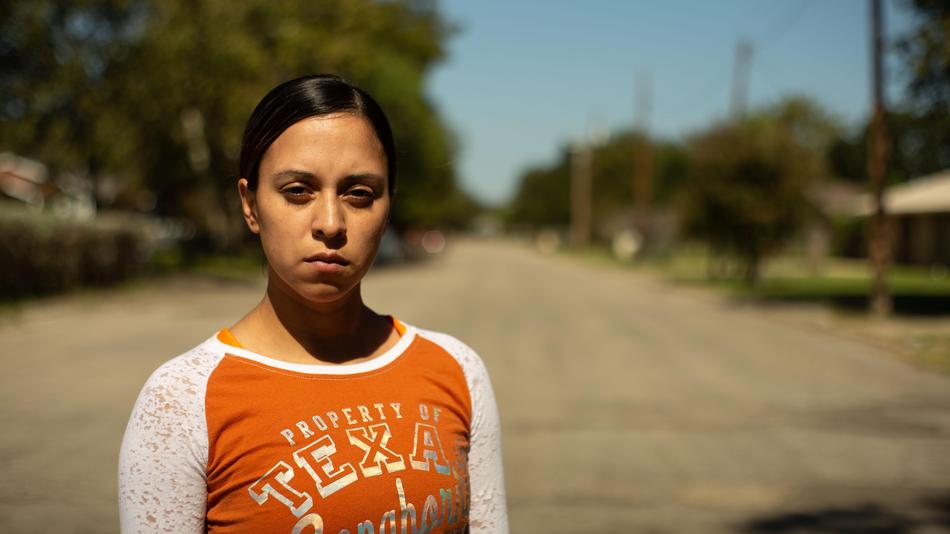In Uvalde Mom, Angeli Rose Gomez claims she is not a hero. “The only job I did that day was being a mom,” Gomez said. But the documentary highlights Gomez’s heroic act to save her two sons from the 18-year-old shooter who killed 19 children and two teachers and injured 17 others with an AR-15 style rifle inside Robb Elementary in Uvalde, TX.
Uvalde Mom recounts that day from Gomez’s point of view and the following harassment she experienced from local law enforcement, her community, and social media. While the film doesn’t include footage of the actual shooting, it’s still heartbreaking and infuriating to watch as it shows the police response (or lack thereof) and how the parents were treated on campus.
“In Uvalde, we say we bleed maroon. And that day we actually bled maroon, and we lost a lot of lives,” Tina Quintanilla said after Uvalde Mom’s premiere at SXSW Film Festival this month. Quintanilla is a fourth-generation Mexican-American from Uvalde and an activist featured in the film. Her daughter survived the shooting.

Before she spoke during the Q&A, Quintanilla named every child and teacher who died on May 24, 2022. “I think it’s time for us to be advocates of our futures and of these kids’ futures,” she shared. “And the weak need to step out and let the strong step in.”
Before the tragedy threw the town into the public spotlight, Uvalde thought of itself as a sleepy, 15,000-resident town located 50+ miles from the U.S./Mexico border. When Uvalde Mom director Anayansi Prado learned that the population is majority Hispanic, she reached out to many locals for a potential story focusing on social and humanitarian issues such as undocumented immigration and race identity. Gomez was the only one who responded.
At that point, Gomez was known as the “Uvalde Mom” who bypassed the officers on campus during the shooting, jumping the fence and grabbing her sons and brother-in-law. Gomez shared during the Q&A that she was feeling isolated and exposed when Prado reached out. Thankfully, Prado didn’t immediately start asking her about the shooting – she wanted to get to know Gomez first.
“I said,’you don’t have to trust me. I’m a complete stranger. You just went through this tragedy. You just went through this media storm,’” Prado recalled. “I said, ‘Can you at least give me the chance to earn your trust?’”
Their relationship began at that point.
There were nearly 400 law enforcement officers from several different agencies at the elementary school that day, but they waited over an hour before they engaged with the shooter. Cell phone footage in the film showed parents distraught as officers prevented them from entering the school. Some parents were arrested and pepper-sprayed.
The backlash over the police’s action was swift. When their local government failed to take responsibility, parents and students attended school board meetings demanding change. There were protests. Several new organizations filed a lawsuit against the City of Uvalde, Uvalde County Sheriff’s Office, Uvalde Consolidated Independent School District, and Texas Department of Public Safety after these government agencies refused to release public records related to the shooting, including body camera footage, emails, and call logs.
Gomez was very vocal and she recounted that she received a phone call telling her to stop talking to the press or that she would be charged with obstruction of justice. Those who would silence her then weaponized Gomez’s not-so-perfect past against her.
Regardless, Prado does a great job of making Gomez the heart of the film. Her love for her sons is evident throughout, and they are her motivation as she copes with PTSD while trying to navigate life after the shooting. She cries in the backseat of her mom’s car after they drop off her sons at Robb Elementary for the new school year. That touching scene reveals that underneath her tough exterior is a mom who just wants to keep her children safe.
It has been almost three years since the shooting and only two local law enforcement officers have been held accountable. Former Uvalde school district police chief Pedro Arredondo was fired 90 days after the shooting. He and former officer Adrian Gonzales were indicted of child endangerment. Both pleaded not guilty.
Prado shared at the SXSW screening that the film will continue through the festival circuit with the hope that it will find a home on a broadcasting or streaming platform so it can reach a wider audience. Uvalde Mom is a tough watch but it shares a powerful personal story that needs to be seen far and wide.
“I hope that we can all get involved through some organizations that are doing really incredible work around gun violence issues and that we do not forget about Uvalde,” Prado said.
“They [the victims] couldn’t be here today, but we are,” said Quintanilla. “We are the voice for those that cannot speak. We will not fear. We will stand proud and tall.”

